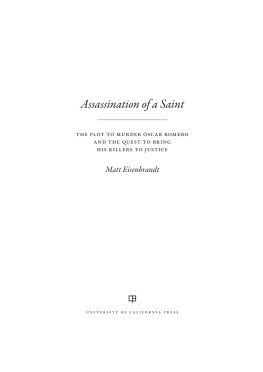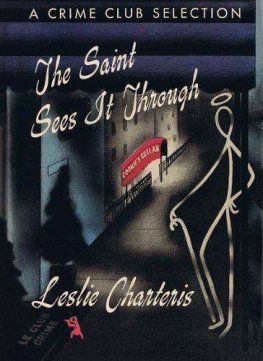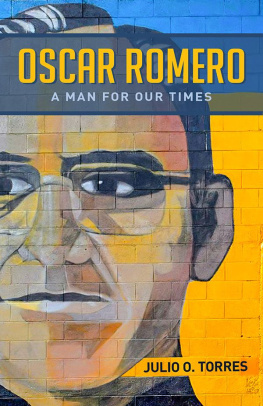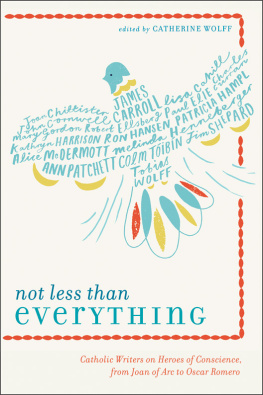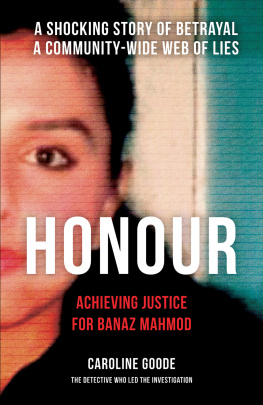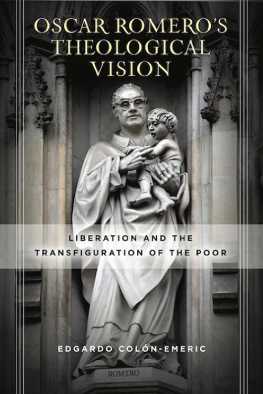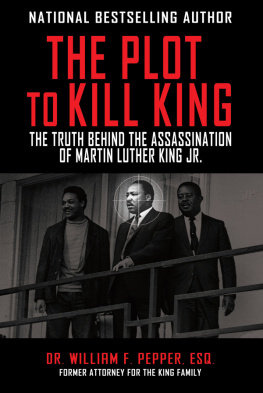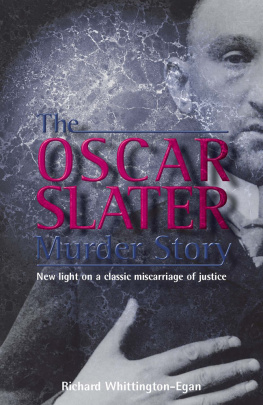PREFACE
SAN SALVADOR, EL SALVADORMARCH 24, 1980
On the surface, the advertisement buried in the middle pages of El Salvadors largest dailies was no more than a notice about a Catholic mass. A service that Monday night, the announcement said, would commemorate the first anniversary of the death of Sara Meardi de Pinto, the mother of Jorge Pinto, an outspoken publisher of a small Salvadoran newspaper. The ad began with a quote from Doa Sarita, as she was affectionately known, saying that her greatest hope in life had been to foster unity, love, and understanding. Farther down the page, a list of families sponsoring the mass comprised the elite sector of society from which Doa Sarita came. The names were instantly recognizable to any Salvadoran as a roster of the rich and famous who controlled the nations economy. Doa Sarita, though, had led a charitable life.
The announcement included an invitation to the mass, to be officiated by the archbishop of San Salvador, the countrys capital and largest city, in the chapel of the Divina Providencia hospital at 6:00 P.M. scar Romero, the ads unnamed archbishop who would lead the mass, was troubled by the announcement. He was well aware that paid advertisements campos pagados were a common mode of political speech in El Salvador, and in those bloody days they carried grave significance. Terrorists were often unmasked in bold typeface and fascists were denounced in block letters. Even though El Salvador was overwhelmingly Catholic, Romero himself was a frequent target of print attacks because he dared to denounce the rampant injustices in the country. His detractors regularly called Romero a Marxist, and one publication ludicrously claimed that he ran his own terrorist cell. Now the newspaper ad broadcast to the entire countryand, more importantly, to the extremists who wanted him deadRomeros precise location at 6:00 P.M. that night.
Romero learned about the announcement early in the day through a call from an alarmed supporter. As he hung up the phone, Romero tried to hide his concern, but the Carmelite nuns who worked with him at Divina Providencia, the tiny hospital for cancer patients where he lived, urged the archbishop to cancel the mass that night. The risk was too great, they said. The nuns knew Romero had spent the last three years in constant peril for refusing to stay quiet in the face of persecution by El Salvadors military. Even the murders of fellow priests did not keep Romero from denouncing the widespread repression. In spite of his fear, Romeros response to the nuns caution was, as always, Were in Gods hands.
Around six that evening, the doors of the chapels north entrance were open to worshippers as well as a cooling breeze. With the sun setting behind Divina Providencias lush tropical grounds, Archbishop Romero walked the short distance from his humble living quarters to the church. Draped in purple Lenten vestments, with short hair and outdated brow-line glasses, Romero began the liturgy while a few latecomers took seats in the back. Despite the ad in the newspapers, no more than two dozen people were there, a contrast to the hundreds who had attended Romeros Sunday mass the day before and the hundreds of thousands who listened to him on the radio. Romero led the small congregation through biblical readings and a recital of the 23rd Psalm before reaching the homily, the part of the service that allowed Romero to preach about the deplorable conditions in El Salvador by tying the peoples misery to lessons from the Bible. Romeros Sunday sermons were legendary for their candor about the murders and torture committed throughout the country, but in the Monday memorial service, Romero gave a more measured homily. He spoke intimately about Doa Sarita and told the audience, We know that every effort to improve a society, especially when injustice and sin are so present, is an effort that God blesses, that God wants, that God demands from us. These were words that guided Romeros life.
As Romero preached, a freelance photographer, Eulalio Prez, arrived at the chapel in a taxi. He entered through the main door, sat in the second-to-last row, and prepared his camera, completely unaware that the next photos he would take would soon appear around the world. At the same time, a car turned onto the long, tree-lined driveway leading into the Divina Providencia complex. The Volkswagen circled around the parking lot and came to an idle in front of the chapel, its red roof visible to a student looking out the window of a nearby building but not to the congregants inside the church. Their attention was on Romero as he finished the homily and turned to the communion hosts and wine on the altar, saying, May this body immolated and this blood sacrificed for humanity nourish us also, so that we may give our body and blood to suffering and pain like Christ, who did so not for himself but to give justice and peace to his people. The words were prophetic. Let us unite closely in faith and hope in this moment of prayer for Doa Sarita and ourselves
A deafening explosion crackled through the chapel. The worshippers threw themselves to the ground, all intimately familiar with the sound of gunfire. Several covered Jorge Pinto, assuming the bullet was intended for him. Some thought they heard a second shot. Within seconds, Eulalio Prez jumped up, snapping photos. Prez was so quick and so bold, in fact, that the congregants would later suspect him of being the assassin, a gun perhaps hidden inside his camera. The other churchgoers slowly raised their heads, not sure they wanted to see what horror awaited them. A woman ran to a window wondering if the shooter was still outside, while others looked toward the open door of the main entrance. A nun in another building heard the shooting and raced in terror to the chapel.

